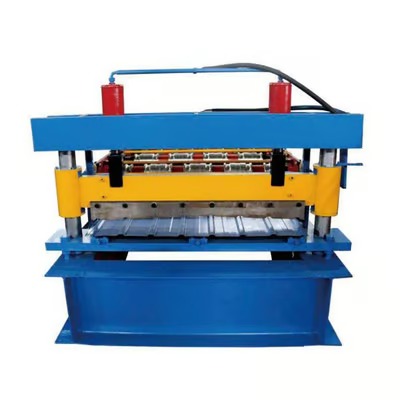Roll Forming Machine for Sale: A Comprehensive Guide
Introduction
Are you in the market for a roll forming machine? Look no further! In this article, we will provide you with a comprehensive guide on roll forming machines for sale. From understanding the basics to comparing different types and finding the best deal, we've got you covered. Let's dive right in!
1. What is a Roll Forming Machine?
Before we explore the options available for roll forming machines for sale, it's important to understand what exactly a roll forming machine is. A roll forming machine is a piece of equipment used in the metalworking industry to shape metal sheets into desired profiles or shapes. It consists of a series of rollers that gradually shape the metal as it passes through them.
2. Types of Roll Forming Machines
When searching for a roll forming machine for sale, it's essential to consider the specific type of machine that suits your needs. Here are some common types of roll forming machines:
- Single-stand roll forming machines
- Double-stand roll forming machines
- Cassette-type roll forming machines
- Flexible roll forming machines
- High-speed roll forming machines
3. Factors to Consider When Buying a Roll Forming Machine
Investing in a roll forming machine requires careful consideration. Here are some key factors to keep in mind:
- Machine capacity
- Material compatibility
- Production speed
- Roll forming tolerance
- Machine durability
- Service and support
4. Researching and Comparing Options
Now that you know the basics and factors to consider, it's time to research and compare different roll forming machines for sale. Start by exploring reputable manufacturers and suppliers in the industry. Read reviews, compare specifications, and assess the overall reputation of each option. This will help you narrow down your choices.
5. Evaluating the Price Range
While price shouldn't be the sole determining factor, it plays a significant role in your decision-making process. Roll forming machines for sale can vary in price depending on factors such as size, complexity, and brand. It's crucial to establish a budget and find a machine that offers the best value for your investment.
6. Assessing Machine Quality and Performance
Quality and performance are crucial considerations when purchasing a roll forming machine. Look for machines that are built with high-quality materials and components. Additionally, check for features that enhance performance, such as advanced control systems and automation capabilities. Investing in a reliable and efficient machine will ensure long-term success.
7. Seeking Expert Advice
If you're new to the world of roll forming machines or have specific requirements, seeking expert advice can be invaluable. Consult with industry professionals, engineers, or experienced users to gain insights and recommendations. They can provide valuable guidance based on their expertise and help you make an informed decision.
8. Considering Customization Options
Depending on your specific needs, customization options may be essential. Some manufacturers offer the ability to tailor the roll forming machine to your exact requirements. Whether it's additional features, specific dimensions, or specialized tooling, consider the customization options available to ensure the machine meets your unique production needs.
9. Warranty and After-Sales Support
When investing in a roll forming machine, it's important to consider the warranty and after-sales support provided by the manufacturer. A comprehensive warranty ensures that you're protected against any potential defects or issues. Additionally, reliable after-sales support ensures that you can receive assistance and maintenance services whenever required.
10. Making the Purchase
After conducting thorough research, comparing options, and considering all the factors, it's time to make the purchase. Contact the chosen manufacturer or supplier, discuss the details, and finalize the transaction. Ensure that all terms and conditions are clearly stated in the purchase agreement to avoid any misunderstandings.

